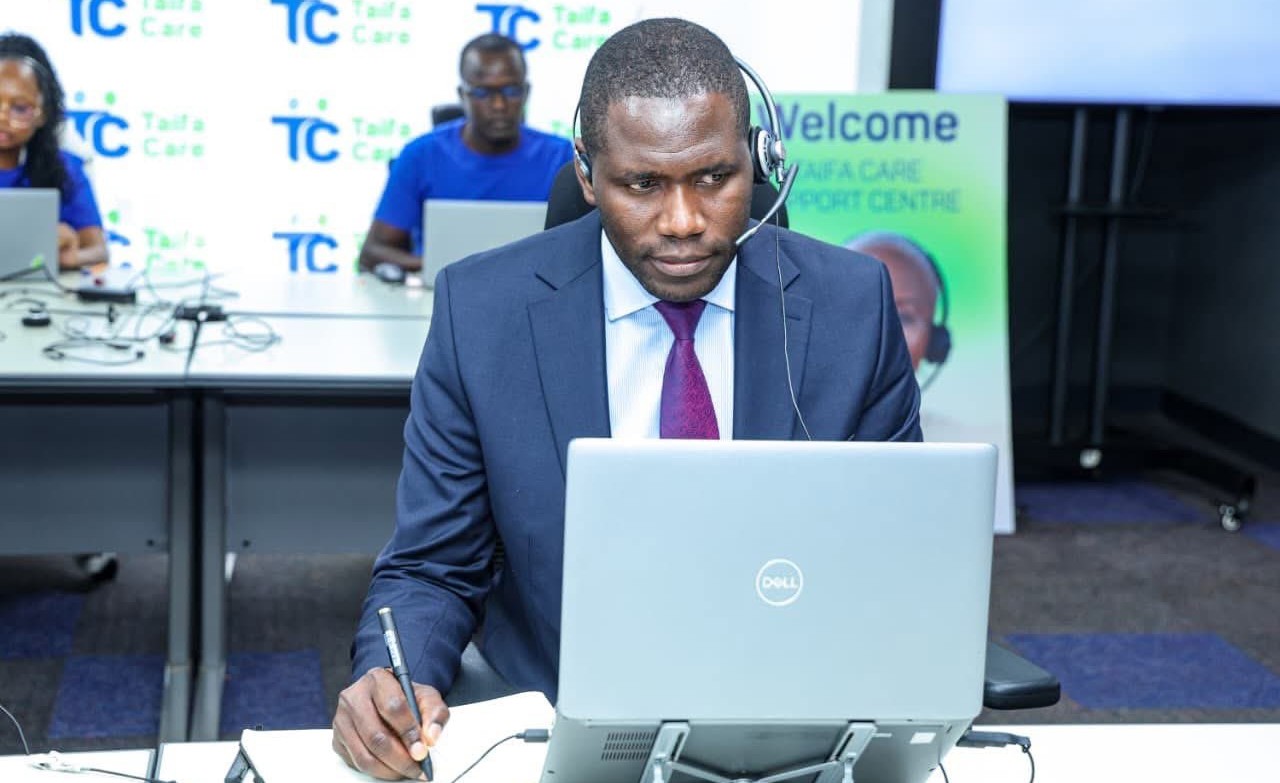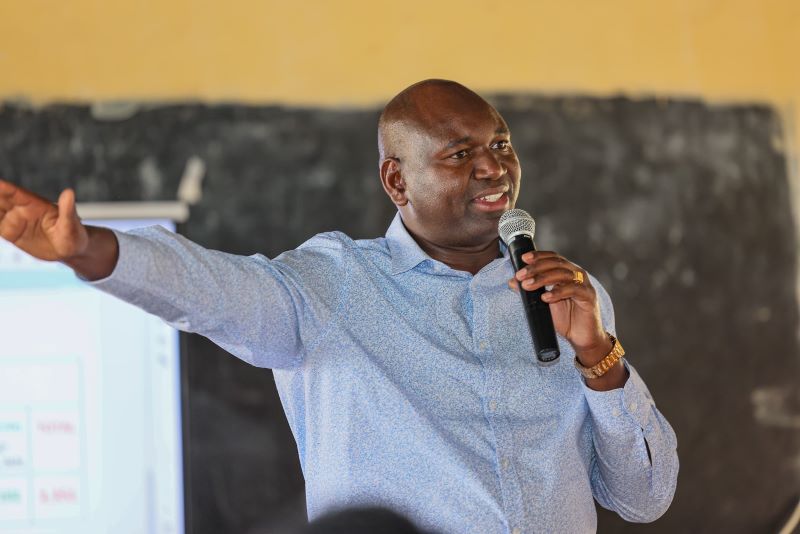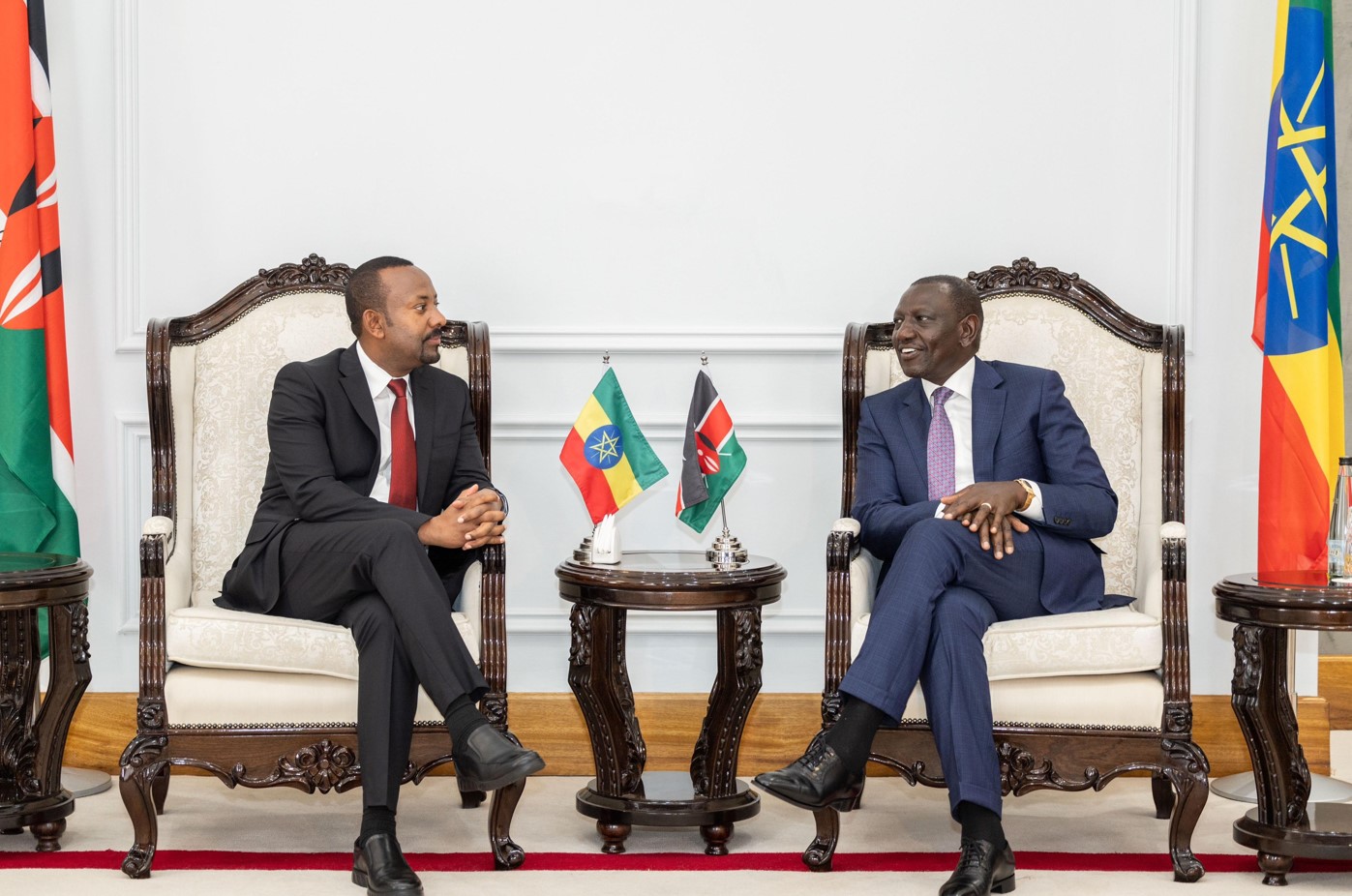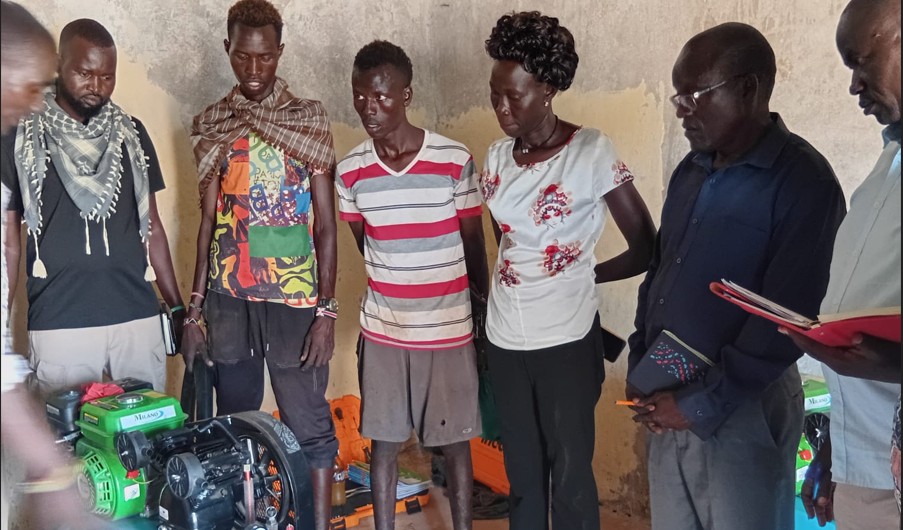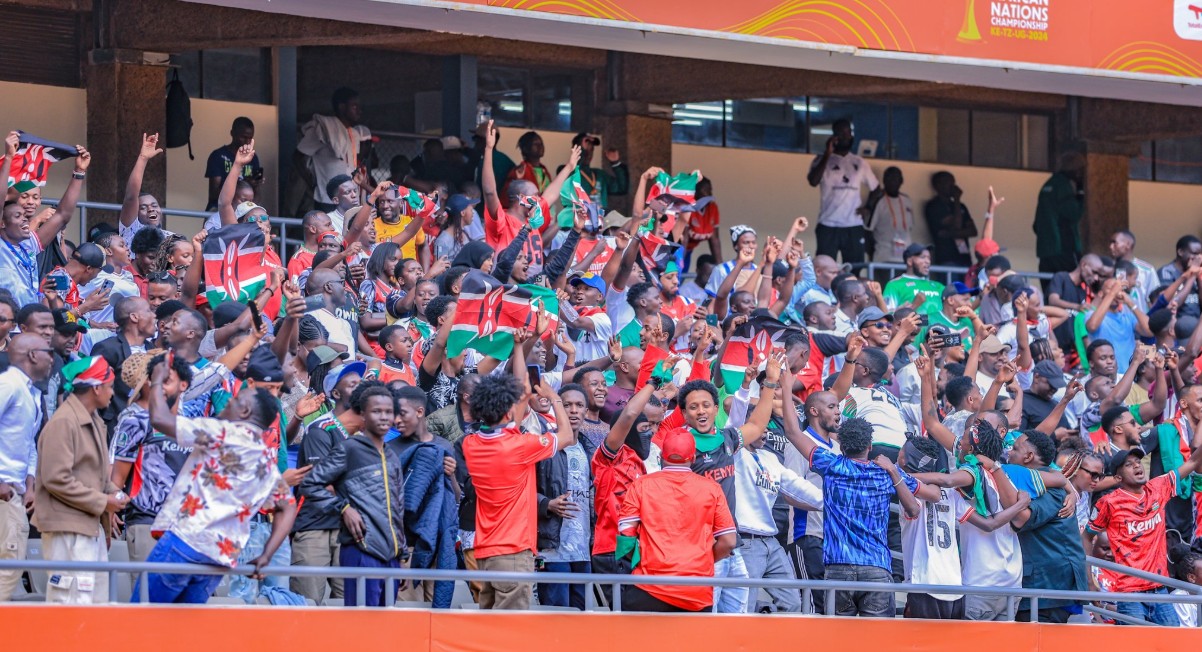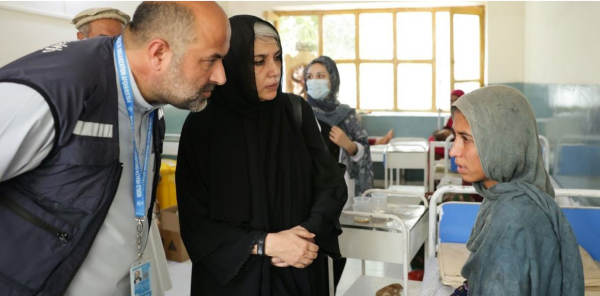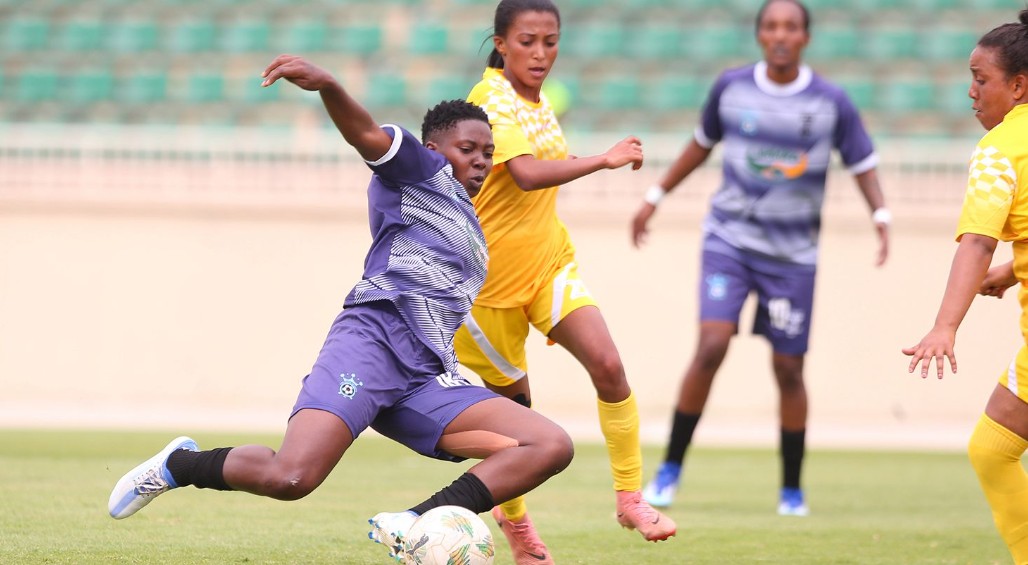Karua defends role in Kibaki’s 2007 swearing-in, says she has no regrets

She asserted that the action was in line with the Inter-Parties Parliamentary Group (IPPG) amendment, which she believes required the president to be sworn in immediately after being declared the winner.
NARC-Kenya party leader Martha Karua has opened up about the dramatic events surrounding President Mwai Kibaki’s swift swearing-in during the contested 2007 elections, recalling her unwavering support for the late President despite the intense political climate.
In her memoir, ‘Against the Tide’ Karua recounts the aftermath of a hotly disputed presidential race, which saw the opposition rejecting Kibaki’s victory.
More To Read
- Opposition leaders claim suspected toxic sugar cleared at Mombasa port, warn of public health risk
- Besigye, aide sue Kenya for alleged cross-border abduction by Ugandan agents
- Karua dismisses 2027 opposition line-up speculation as premature
- Raila Odinga: I regularly engage Ruto and opposition leaders to heal Kenya’s political wounds
- Kenyans can directly appoint IEBC when systems fail - Karua
- Enough is enough! Man lashes out at DCI in court over blogger Ndiang’ui Kinyagia's disappearance
After the election, the outcome was hotly disputed, with widespread accusations of electoral fraud. The opposition, led by Raila Odinga, rejected Kibaki's victory and called for protests, claiming the election had been rigged. Despite the political tension and protests, Kibaki was declared the winner by the Electoral Commission of Kenya.
Karua, who emerged as a strong ally and supporter of Kibaki, was at the forefront of ensuring that he was sworn in immediately after the declaration. The swearing-in ceremony took place at dusk on December 30, 2007, at State House, Nairobi, despite the chaos and ongoing protests in the country.
While reflecting on her actions during an interview with Citizen TV on Sunday, Karua maintained that the decision to swear Kibaki in without delay was legally justified.
She asserted that the action was in line with the Inter-Parties Parliamentary Group (IPPG) amendment, which she believes required the president to be sworn in immediately after being declared the winner.
“The swearing-in had to be done immediately. Kibaki was declared the winner, and according to the IPPG amendment, the President was to be sworn in as soon as he was declared,” Karua said.
“His leadership was on the line, and it was crucial that he was sworn in despite the opposition’s objections.”
"Maintain order"
As Kibaki’s agent, Karua was adamant that the swearing-in process was necessary to maintain order. She explained that, given the circumstances, there was no other option.
“How else could the swearing-in have been conducted? It was vital to swear him in immediately,” she added.
She reiterated that she had no regrets about supporting Kibaki at the time.
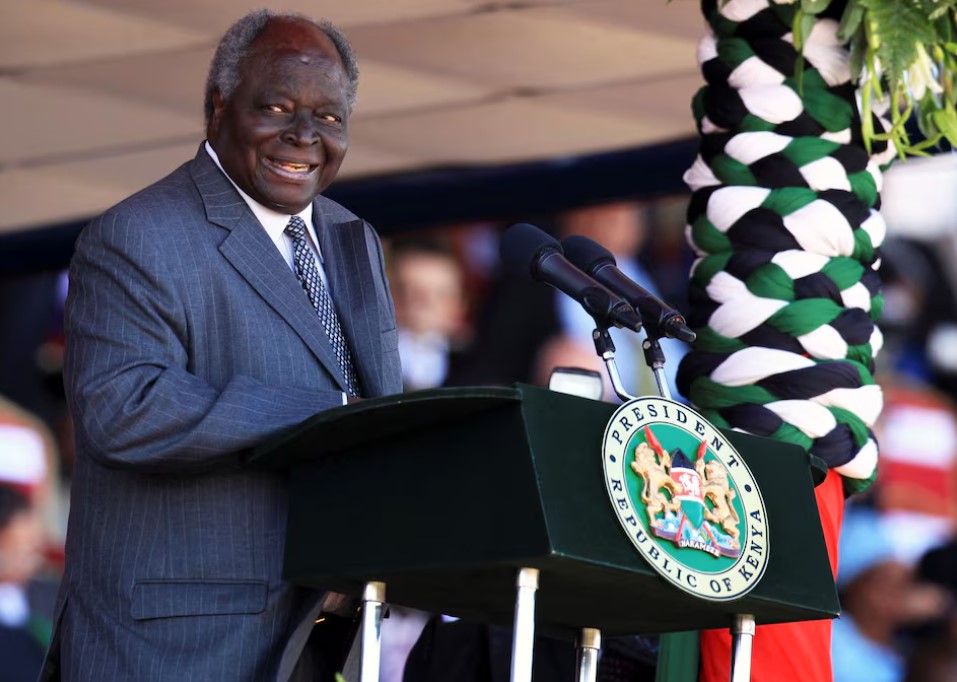 Former President Mwai Kibaki delivers his speech during the national celebrations to mark the 49th Jamhuri Day at Nyayo National Stadium in Nairobi December 12, 2012. (Photo: REUTERS/Noor Khamis)
Former President Mwai Kibaki delivers his speech during the national celebrations to mark the 49th Jamhuri Day at Nyayo National Stadium in Nairobi December 12, 2012. (Photo: REUTERS/Noor Khamis)
“I did what was right, and I stand by that decision. Even tomorrow, I will do what is right. I have no regrets about the role I played as Kibaki's agent and the vote I cast for him,” she said.
However, Karua expressed sorrow over the post-election violence that followed, which resulted in widespread tribal clashes, loss of life, displacement, and property destruction.
Other Topics To Read
“We regret the loss of life, the destruction of property, and the displacement of people. We also regret our failure as leaders, which could have led the country into an abyss,” she said.
In her memoir, Karua also sheds light on the inner workings of the political elite during Kibaki's presidency.
She explores the reasons behind the administration's failure to tackle corruption, pointing to internal tensions and the build-up to the 2010 referendum as key factors.
At the launch of her memoir on Sunday, the seasoned politician opened up about the inspiration behind the book and the challenges she has faced throughout her career.
“This book is a labour of love, and it reflects the love I have for Kenya,” Karua said during the event, offering a glimpse into the deeply personal narrative she shares with her readers.
Her memoir is not only a reflection of her remarkable journey in law and politics but also a call to action for others to persevere through life's difficulties.
“Against the Tide is about overcoming adversity. It’s about resilience,” Karua said, highlighting the core message of her book.
Karua took a moment to reflect on her early career, sharing a throwback photo from 1982, the year she was admitted to the bar as a practising advocate.
“The year was 1982 when I was admitted to the bar. By then, I had already started my career as a Magistrate in Nakuru at the age of 24. The political climate was challenging, especially with the failed coup d’état that had just occurred,” she recalled.
Looking back over the course of her career, Karua reflected on the journey that led her to become a Senior Counsel 38 years later.
“It has been a long journey, and it hasn’t been easy. Through public service and private practice, I have successfully argued cases that have set legal precedents,” she said.
“But the road has been full of obstacles, losses, and betrayals. My story is one of resilience, of going against the tide and overcoming the challenges that come your way.”
Top Stories Today
